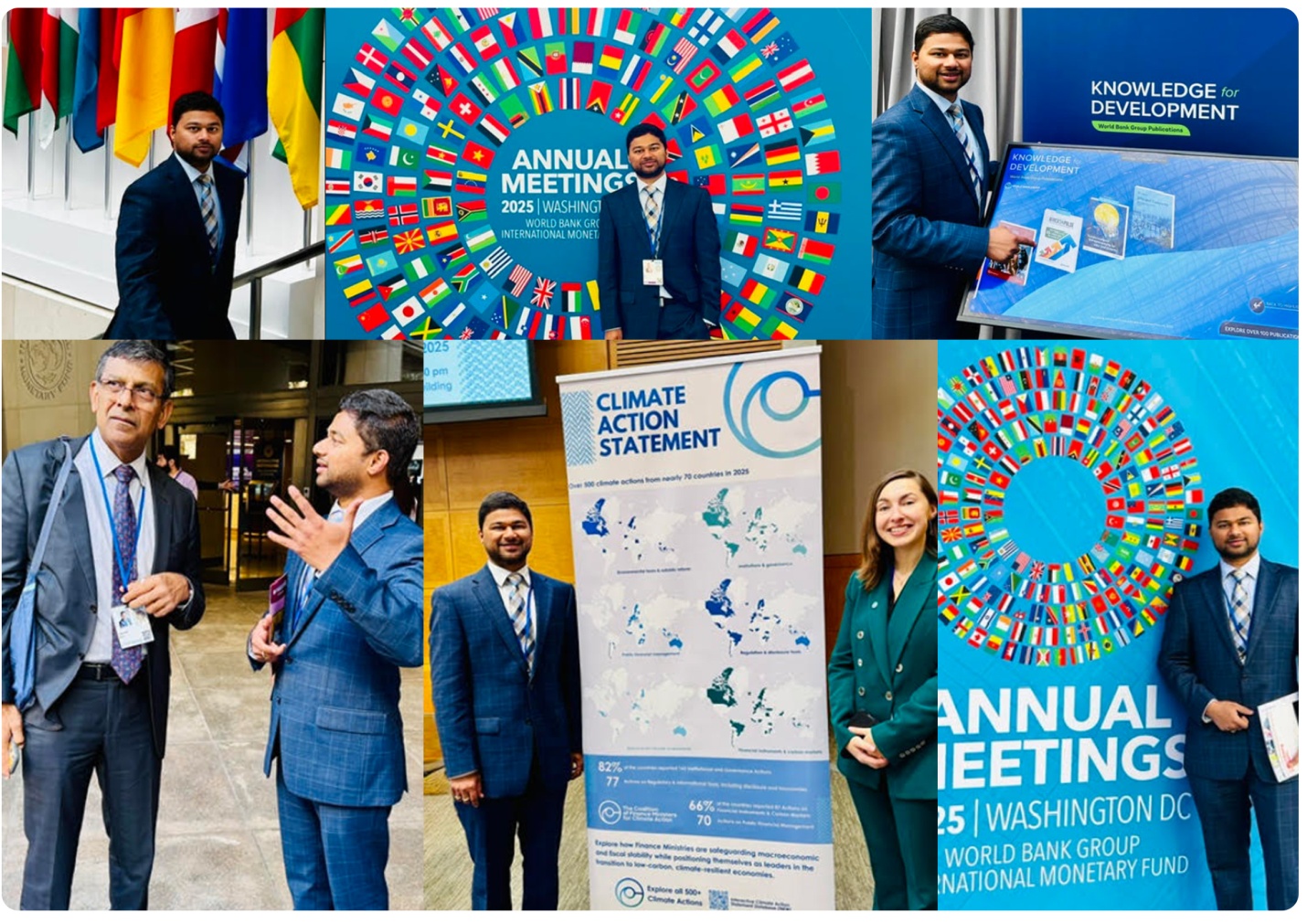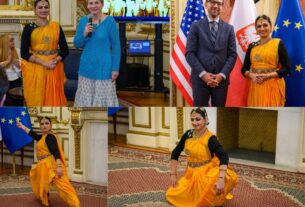The 2025 World Bank and International Monetary Fund (IMF) Annual Meetings in Washington, D.C., held from October 13 to 18, gathered global policymakers, economists, and civil society leaders to discuss pressing challenges in finance, development, and technology. Among the distinguished participants was Ashraf Syed, Assistant Secretary General of the International Commission of Culture and Diplomatic Relations (ICCDR), who made notable contributions through his active participation, interventions, and advocacy for ethical AI governance and inclusive digital transformation. Throughout the week-long sessions, Syed’s presence was felt across multiple high-level dialogues and flagship forums. He represented the ICCDR’s vision of cultural diplomacy intertwined with technological inclusion, ensuring that developing nations—particularly those with fragile digital infrastructure are not left behind in the rapidly evolving artificial intelligence (AI) landscape. Syed’s primary speaking engagement was at the Global IDA Forum: Progress and Reflections from IDA20 to IDA21, where he emphasized the urgent need for a robust AI governance framework within both the World Bank Group (WBG) and the IMF. His remarks underscored the necessity of integrating ethical AI principles that respect the unique developmental and digital realities of low-income and emerging economies. “Without inclusive AI governance, the digital divide will only deepen,” Syed noted during his intervention. “The World Bank and the IMF must set the precedent by ensuring that every nation, regardless of its technological maturity, benefits from the AI revolution.”
Syed argued for the adoption of an ethical inclusivity model, suggesting that the AI frameworks designed by major financial institutions should embed equity, accessibility, and fairness as core tenets. His insights were particularly well-received in the context of IDA’s (International Development Association) mission to uplift the world’s poorest countries through concessional financing. During the World Bank Executive Directors Round Table with Civil Society, Syed again articulated his vision for bridging the digital gap between the developed and developing worlds. He called for joint AI governance standards that align with sustainable development goals (SDGs) and human-centric innovation. In another highlight of the meetings, Syed participated in WBG AgriConnect: Farms, Firms, and Finance for Jobs, a flagship event linking agricultural productivity with financial inclusion. Here, he drew attention to the potential of Small AI, lightweight generative AI tools, to transform the agricultural sector in developing countries by enhancing data-driven decision-making, optimizing resource use, and creating new employment opportunities.
Syed’s engagements extended beyond formal panels. He attended the CSO Townhall with IMF Managing Director Kristalina Georgieva and the Annual Civil Society Townhall with World Bank leadership, both of which focused on strengthening partnerships between global institutions and civic actors. In these discussions, Syed reiterated the importance of democratizing AI and fostering transparency in algorithmic decision-making. Syed’s engagement with Indian financial leaders added another dimension to his participation. At the Monetary and Financial Policies for Emerging Markets in an Uncertain World event, he interacted with Sanjay Malhotra, representing the Reserve Bank of India (RBI), where discussions revolved around India’s cautious stance on crypto regulation and the nation’s growing investment in AI-led financial innovation. In a brief yet impactful one-on-one conversation, Syed met former RBI Governor Dr. Raghuram Rajan to discuss the transformative potential of AI in jobs and education. Dr. Rajan offered thoughtful insights and career guidance to Syed, commending his commitment to responsible AI advocacy. A particularly memorable moment came when Ashraf Syed met World Bank President Ajay Banga. Their discussion revolved around integrating AI literacy and orientation into education programs across developing nations, a critical step toward preparing the next generation for the evolving global job market. Syed proposed that AI education should be woven into the fabric of the World Bank’s development and job-creation initiatives. He also highlighted the role of Generative AI tools in boosting productivity, particularly in agriculture and small business ecosystems across Africa, South Asia, and Latin America. President Banga, whose leadership vision centers on job creation and sustainable growth, commended Syed’s insights as aligned with the World Bank’s mission to deliver impact-driven, inclusive development.
Adding intellectual depth to his participation, Syed attended the Per Jacobsson Foundation Lecture, moderated by Dr. Raghuram Rajan, and keynoted by Tharman Shanmugaratnam, President of Singapore. The lecture delved into the global implications of AI on productivity, governance, and efficiency, a topic deeply aligned with Syed’s lifelong advocacy. The discourse reinforced his belief that the world needs multilateral AI governance systems that are both adaptable and globally representative, bridging the policy and capability gaps between nations. On October 18, Syed attended the Annual Meetings Plenary at the DAR Constitution Hall, where IMF Managing Director Kristalina Georgieva presided over a gathering filled with finance ministers, central bank governors, and delegates from across the globe, including representatives from Saudi Arabia, Ireland, Greece, Bangladesh, Pakistan, Jamaica, Armenia, Ghana, Armenia, Uganda etc. In parallel to these financial and policy dialogues, Syed also lent his voice to gender-focused discussions. At Capital to Scale: Women Entrepreneurs as Job Creators, he highlighted that data consistently shows women entrepreneurs to be more responsible borrowers and empathetic leaders, qualities that translate into more sustainable enterprises. He also attended African Women Unlocking Economic Potential, which explored investing in women’s empowerment as a lever for global prosperity. These engagements reflected Syed’s broader commitment to inclusive and equitable development, ensuring that gender perspectives remain integral to economic reform.



